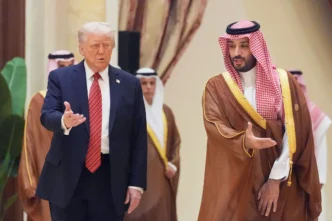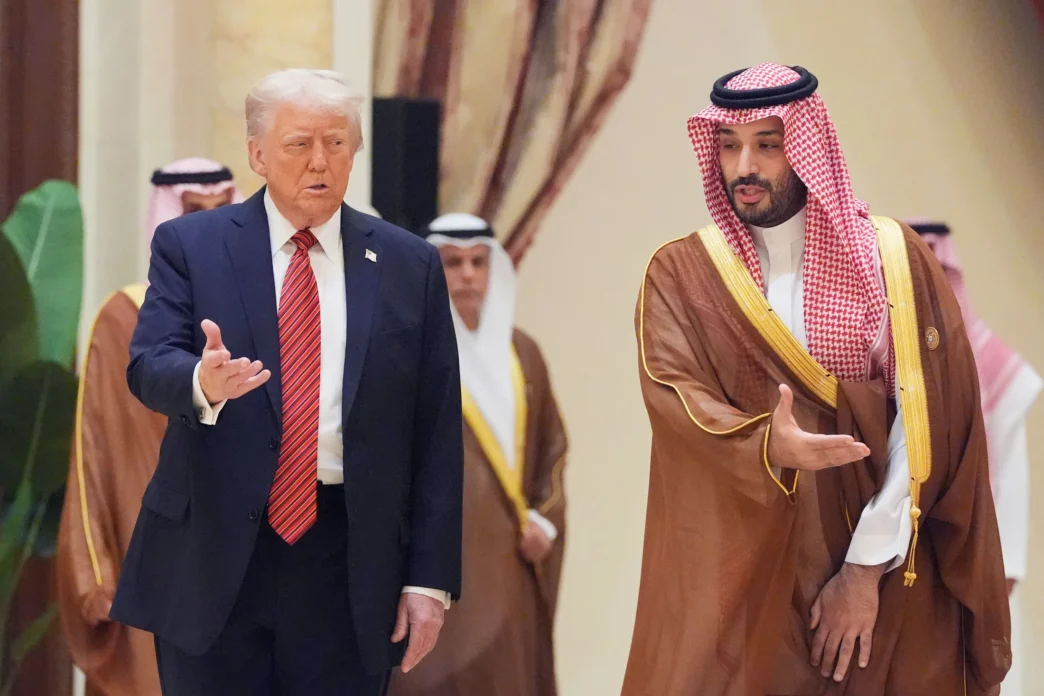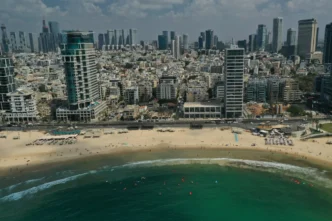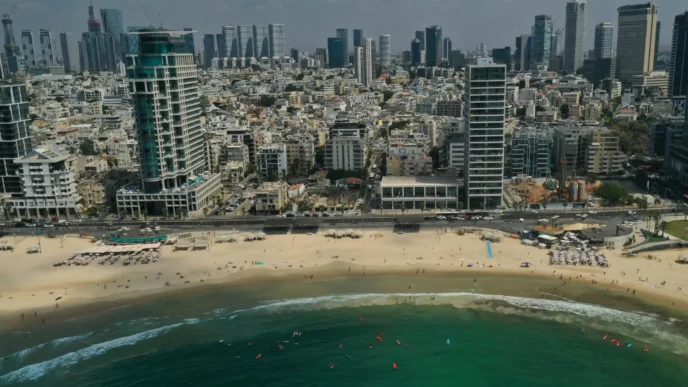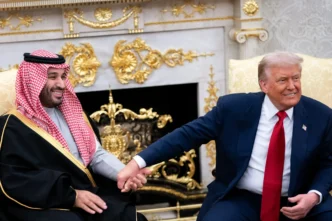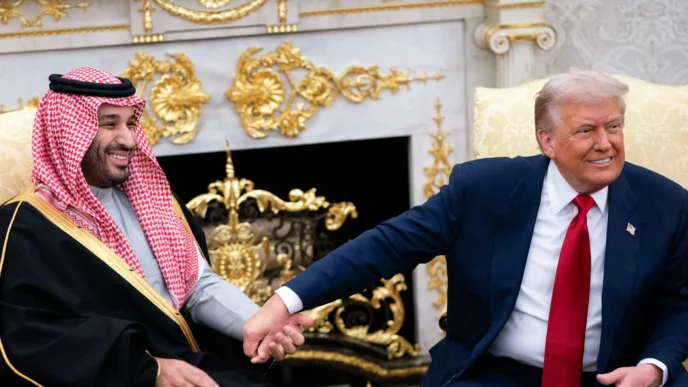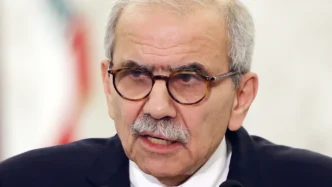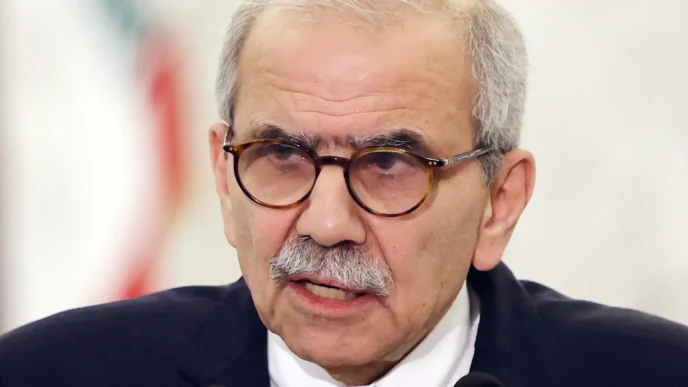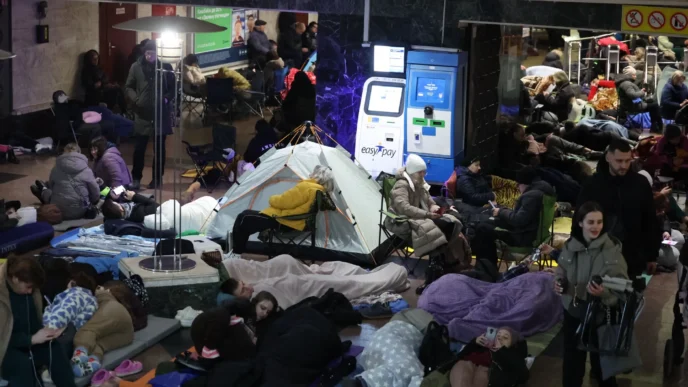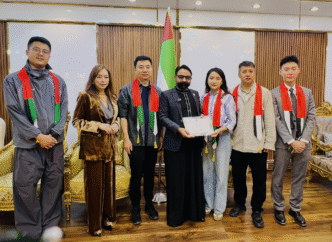Saudi Arabia’s Crown Prince Mohammed bin Salman (MBS) is set to travel to the United States for a closely watched meeting with President Donald Trump, following several weeks of sensitive and sometimes strained negotiations between the two governments. The visit marks one of the most consequential diplomatic engagements between Washington and Riyadh since Trump’s return to office and could shape the trajectory of U.S.–Saudi relations for years to come.
A Relationship Renewed — but Not Without Tension
Trump and MBS have publicly emphasized their strong personal relationship, which dates back to Trump’s first term, when both leaders cultivated a reputation for direct communication and transactional diplomacy. Earlier this year, during Trump’s visit to Riyadh, the two leaders showcased their renewed partnership.
But behind the scenes, recent discussions have reportedly been challenging, with several complicated issues — security cooperation, technological access, and regional diplomacy — dominating the agenda. The Crown Prince’s decision to travel to Washington underscores the strategic weight of these talks and the urgency of reaching concrete understandings.
Core Objectives of the Meeting
1. Security Guarantees and Defense Cooperation
One of MBS’s top priorities is believed to be the advancement of security assurances from the United States. Rather than a formal treaty, the Saudis may seek a presidential executive order or framework agreement that moves the two countries closer to a long-term defense pact. Given ongoing instability in the region, such assurances would represent a major strategic gain for Riyadh.
2. Expanding Saudi Investment in the U.S.
Saudi Arabia is prepared to channel extremely large-scale investments into the United States, supporting sectors ranging from energy and infrastructure to advanced technology. The Crown Prince views deeper economic ties with Washington as essential to his Vision 2030 transformation plan, which relies on diversifying the Kingdom’s economy and strengthening its global partnerships.
3. Access to Advanced AI and Semiconductor Technology
A key issue on the table is Saudi Arabia’s push to acquire cutting-edge American AI chips and related technologies. These technologies are essential to the Kingdom’s ambitions in artificial intelligence, digital infrastructure, defense modernization, and smart-city development. Such exports are heavily regulated in the U.S., making this one of the most sensitive components of the negotiations.
4. Middle East Peace and the Palestinian Question
Regional diplomacy will also feature prominently. Saudi Arabia continues to link any potential normalization with Israel to tangible progress on Palestinian statehood. MBS is expected to press Trump on providing clearer, more explicit support for a two-state framework — a position with widespread backing across the Arab world. How Trump responds could influence the future of regional alliances.
Why the Timing Matters
The meeting comes at a moment of recalibration in U.S. foreign policy. Trump is seeking to consolidate his influence in the Middle East, while MBS is working to secure long-term partnerships that can accelerate Saudi Arabia’s economic and technological transformation.
The weeks leading up to the trip were marked by difficult negotiations, with notable sticking points on security arrangements and technology exports. The Crown Prince’s decision to proceed suggests both sides have concluded that only face-to-face diplomacy can break the impasse.
Challenges Looming Over the Talks
U.S. Regulatory Hurdles
Even if Trump personally supports expanded technology cooperation, stringent controls on exporting advanced semiconductor and AI technology could limit what Washington is able — or willing — to approve.
Congressional and Public Scrutiny
Major arms or technology deals with Saudi Arabia often attract criticism in Washington. Lawmakers may question human rights issues, regional stability concerns, or perceived risks of strengthening authoritarian regimes.
Balance of Interests
Saudi Arabia wants long-term guarantees. The U.S. wants investment and regional cooperation but must also navigate competing priorities in Israel, Iran, and broader Middle Eastern dynamics.
What Could Emerge From the Meeting
While final outcomes remain uncertain, several announcements are possible:
- A security or defense cooperation framework outlining steps toward future guarantees.
- Multi-billion-dollar Saudi investment commitments targeting U.S. industries and infrastructure.
- Technology and innovation partnerships, including cooperation on AI systems, data centers, or research labs.
- A joint diplomatic roadmap for regional peace efforts and renewed engagement on the Palestinian issue.
Such deliverables would represent one of the most ambitious expansions of U.S.–Saudi relations in years.
Strategic Implications for Both Leaders
For MBS
- Strengthening ties with Washington safeguards Saudi Arabia during a period of regional tension.
- Advancing technological access is essential to the Kingdom’s modernization plans.
- Securing U.S. backing on regional diplomacy boosts Riyadh’s influence across the Arab world.
For Trump
- A successful summit would signal American strength and diplomatic reach.
- New Saudi investment provides a key economic and political win.
- Reinforced ties with Riyadh could reshape Middle Eastern alliances and counter rivals.
A Meeting That Could Reset U.S.–Saudi Relations
The upcoming visit reflects a moment of opportunity — and risk. Both sides have much to gain if the meeting produces tangible agreements. Both also face potential fallout if discussions stall or controversies overshadow progress.
What is clear is that the U.S.–Saudi relationship is entering a new phase. With massive economic deals, high-stakes security decisions, and regional diplomacy all on the table, this meeting may become a defining moment in the evolving partnership between Washington and Riyadh.


